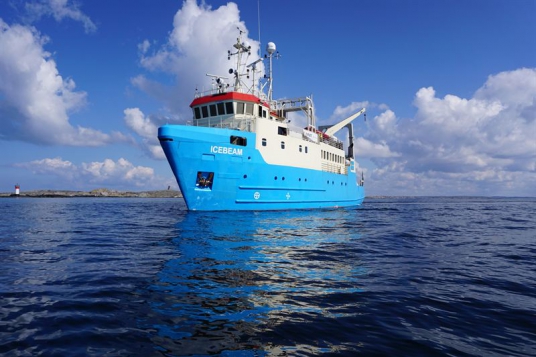Danes To Rename Utility, Advance Baltic Pipe
Danish state-run utility Dong Energy has announced plans to change its name, while state-run Energinet has contracted a route survey for Baltic Pipe.
The planned name change by Dong follows completion October 29 of its divestment, first announced this May, of its upstream oil and gas business to Ineos. The latter has paid $1.05bn, plus $250mn in contingent payments, for Dong E&P.
“On November 6, we’re changing our name to Ørsted – inspired by the Danish scientist HC Ørsted, who laid the foundation for the way we generate power today,” said Dong October 2. However the name change still requires approval by a Dong extraordinary general meeting on October 30.
Chairman Thomas Thune Andersen said: "Dong was originally short for Danish Oil and Natural Gas. With our profound strategic transformation and the divestment of our upstream oil and gas business, this is no longer who we are." Dong CEO Henrik Poulsen added: “2017 will be remembered as the year when offshore wind became cheaper than black energy, as demonstrated by the recent tenders for offshore wind in Germany and the UK.”
Hans Christian Ørsted, born 1777, discovered that electric currents create magnetic fields (electromagnetism) which led, through further work by Faraday, Ampere, Maxwell and Hertz, to modern electronic power production. Dong said its new brand identity would "consist of a full spectrum of colours, inspired by Scandinavian nature and the Danish 20th century artist Vilhelm Lundstrøm." It did not say how stakeholders in international markets would cope with the 'Ø' in the 18th century scientist's name; Dong has windfarms not only in Scandinavia, but also the UK, USA and Germany.
Dong Energy Markets senior vice president Soren Scherfig told NGW in May that the divestment will not affect its gas trading and that it will continue to offer gas storage, supply agreements, and remain active in the LNG sector including retaining capacity at the Dutch Gate LNG terminal.
North Sea Survey Job Awarded
Meanwhile Denmark's wholly state-owned energy grid operator Energinet has awarded a contract to Swedish marine survey specialists MMT to survey the route of the planned up-to-10bn m³/yr offshore BalticPipe in the North Sea, said MMT October 3. The pipeline is planned to have landfall on the west coast of Jutland and the total length of the North Sea part of the pipeline is roughly 105km, plus 5km in the inner Danish Seas (Lillebælt area).
MMT have assigned their vessels Franklin and IceBeam for the offshore survey and smaller nearshore vessels for the intertidal and costal sections. Drones are also used for onshore topography.
The Baltic Pipe is a potential new gas pipeline that would provide Denmark and Poland with a direct access to Norway’s gas fields, and has EU ‘Project of Common Interest’ (PCI) status, giving it priority to EU grants. One such grant is helping fund a feasibility study. BalticPipe is a collaboration between Energinet and its Polish counterpart Gaz-System. In August, Gaz-System contracted Danish engineering consultancy group Ramboll to undertake similar survey work in the Baltic Sea. The aim is to build the pipe so that it can start up in October 2022.

Icebeam, one of the vessels to be used by MMT on the Baltic Pipe survey (Photo credit: MMT)
Mark Smedley



